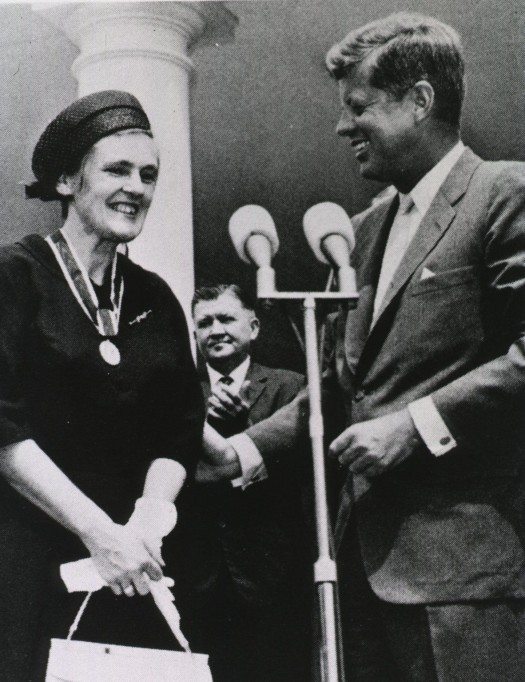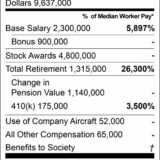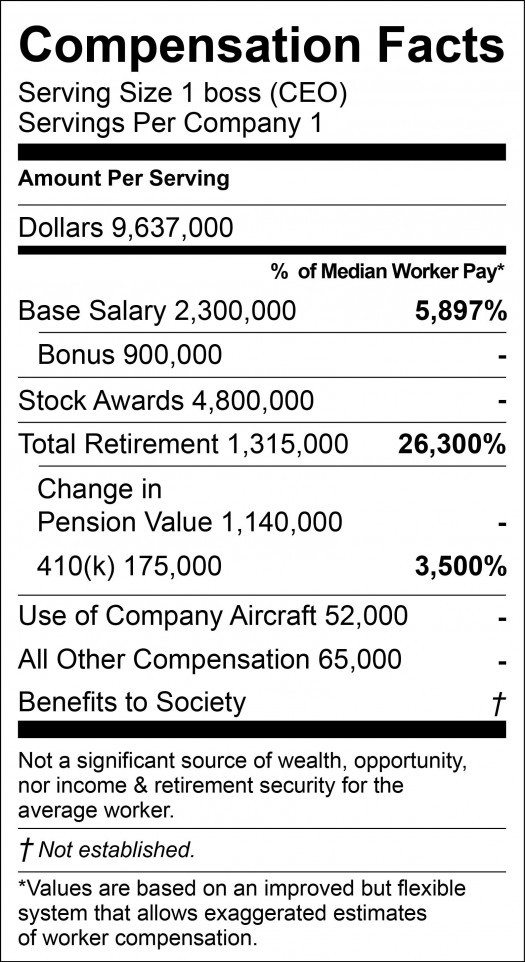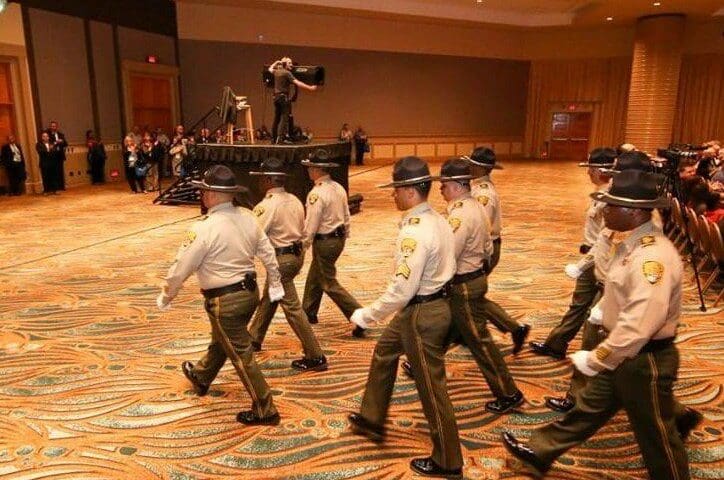

Here’s the good news: The percentage rate of change in global carbon emissions in 2014 was zero. It didn’t go up. That’s the first time in the record books that the world economy grew but carbon emissions didn’t. Here’s the bad news: The average global temperature has been hotter every month since February of 1985 than the 20th century average for any given month. We’re talking 360 consecutive months of warmer-than-average temperatures.
Here’s the really bad news: If we continue to extract fossil fuels – coal, oil, gas – at the current pace, we will not be able to live on the planet by mid-century.
We must leave 80 percent of our coal, oil and gas in the ground, if civilization is to survive.
Here’s the science: Despite the climate deniers, the consensus of people who study this field professionally say that if we raise the temperatures of the planet more than two degrees Celsius (that’s about 3.6 degrees Fahrenheit) human life as we know it will not be possible.
» Read more about: Dethroning Fossil Fuels: The Rise of the New Abolitionists »


Vivian Thorp was 28 years old when she ripped a ligament in her knee lifting heavy freight at Walmart in Vallejo, California. Until then, she’d liked her job and was good at it. “I was always strong and agile, and I had the skills for a physical job,” she says. “I helped set up that store.” But when the injury laid her up, she found herself adrift in the job market. “I wasn’t skilled for anything else other than waitressing or shipping and receiving,” she says. “I got really deeply depressed.”
Her life began to unravel. A bank repossessed the rental she was living in. The father of her baby daughter Jasmine, born in 1994, left Thorp and returned to England. In 1997, four years after the accident, Walmart finally paid her $20,000 for medical expenses and lost income, but more than half of it went to pay back workers’ compensation.
» Read more about: California's Worst Law — And What's Behind the Repeal Movement »


 We hear so much about “big government” burdening “job creators” with excessive “red tape” and “bureaucracy,” but that rhetoric isn’t new. Even in the decades after the New Deal, when workers had more power than they do today, and the government was seen as society’s protector, private profit too often conflicted with the public interest.
We hear so much about “big government” burdening “job creators” with excessive “red tape” and “bureaucracy,” but that rhetoric isn’t new. Even in the decades after the New Deal, when workers had more power than they do today, and the government was seen as society’s protector, private profit too often conflicted with the public interest.
Take the sleeping drug thalidomide, which caused thousands of infant deaths and birth deformities across Europe in the early 1960s. Before being linked to those defects, the drug reached the desk of Dr. Frances Oldham Kelsey, a medical officer at the U.S. Food and Drug Administration. Dr. Kelsey saw something odd in the drug trials performed by the pharmaceutical company that manufactured thalidomide, and requested more tests. The company, with profits at stake, bullied her to approve the drug, even threatening a lawsuit.
Meanwhile, evidence from Europe began to pour in that thalidomide was toxic if taken during pregnancy.
» Read more about: How Dr. Frances Kelsey's 'Red Tape' Saved Thousands of Infants »


 You might not think that one additional figure in the thick of annual financial reports would be a serious threat to our major corporations, but you’d be underestimating big business lobbyists’ penchant for hysteria. A simple rule finally passed by the Securities and Exchange Commission (SEC) last week drew more than a quarter million comments and 1,500 letters to the commission – add a large stack of articles and op-eds, and one can imagine quite a number of people with steam shooting out of their ears.
You might not think that one additional figure in the thick of annual financial reports would be a serious threat to our major corporations, but you’d be underestimating big business lobbyists’ penchant for hysteria. A simple rule finally passed by the Securities and Exchange Commission (SEC) last week drew more than a quarter million comments and 1,500 letters to the commission – add a large stack of articles and op-eds, and one can imagine quite a number of people with steam shooting out of their ears.
In a 3-2 vote August 5, the SEC adopted a new rule requiring that companies disclose a comparison of CEO pay with worker pay. This disclosure rule was a mandate of the Dodd-Frank Act, the 2010 legislation passed in the wake of the recession, and will take effect in 2017. Labor groups and others concerned with economic inequality had pushed hard for the SEC to move forward on it.
» Read more about: Explosive Information: Worker Pay Disclosure Ignites Fear in Biz Lobby »


On Tuesday California Attorney General Kamala D. Harris released the full title and summary text for the Public Employees Pension and Retiree Healthcare Benefits Initiative Constitutional Amendment. The title is a mouthful, but the initiative’s wording is just six sentences long.
Its first two lines read: “Eliminates constitutional protections for vested pension and retiree healthcare benefits for current public employees, including those working in K-12 schools, higher education, hospitals and police protection, for future work performed. Adds initiative/referendum powers to Constitution, for determining public employee compensation and retirement benefits.”
Crucially, Harris omits mention of “empowering” voters — a main selling point that had been advertised by former San Jose mayor Chuck Reed, former San Diego City Councilman and Tea Party member Carl DeMaio, and four others. In June this group submitted their proposed ballot initiative to Harris as the Voter Empowerment Act of 2016. Harris’ new title weakens their cause,


The nation’s largest county government is poised to move forward Tuesday with a plan that critics say could roll back innovative public health programs and compromise everything from infectious disease containment to the prevention of smoking, obesity and sexually transmitted diseases.
On August 11, the Los Angeles County Board of Supervisors will vote on a proposed consolidation of three health agencies — the Department of Health Services (DHS), the Department of Public Health (DPH) and the Department of Mental Health (DMH). The plan has the backing of liberal supervisors Mark Ridley-Thomas and Sheila Kuehl, as well as their conservative colleague Mike Antonovich — all of whom argue that it will improve care but are opposed by an array of public health and mental health advocates.
“This consolidation has the potential to cripple public health,” said a high-ranking official with DPH, who spoke on the condition of anonymity.


This week, the American Correctional Association (ACA) will hold its annual conference in Indianapolis, where thousands of government corrections officials, including wardens, jail administrators and sheriffs, will attend workshops and connect with their peers from across the country. Workshops include best practices for successful reentry programs for released inmates and working in corrections across generations.
But many workshops and events will feature a Who’s Who of private corrections companies, including Corrections Corporation of America (CCA), GEO Group, Aramark, Corizon and Telmate.
Those companies should be familiar—many have been prominent in reports we’ve released over the past few years detailing the suffering of inmates in private hands, such as thousands of medical malpractice claims and stories about maggots appearing in prison food.
On the eve of the ACA conference, we have released a new report revealing how such conferences allow corrections companies to influence government officials in ways outside the public’s oversight.
» Read more about: Politically Correctional: How Businesses Game Prison Conferences »


 On Tuesday, California Attorney General Kamala Harris will release the official title and summary that will appear on the 2016 ballot for former San Jose mayor Chuck Reed’s latest statewide public-sector pension cutting initiative.
On Tuesday, California Attorney General Kamala Harris will release the official title and summary that will appear on the 2016 ballot for former San Jose mayor Chuck Reed’s latest statewide public-sector pension cutting initiative.
That language will finally end speculation on how far Harris will go in describing the sweeping scope of the proposed constitutional amendment. Legal analysts have charged that it contains a hidden trigger aimed at not just slashing pension benefits but annihilating 60 years of state pension law along with the vast retirement systems that together guarantee the retirement promises made to California’s public employees.
Initial clues as to what might appear on the 2016 ballot emerged last week as the first formal responses by state officials to the proposed measure began to trickle in.
The stakes for all Californians in the so-called “Voter Empowerment Act of 2016” couldn’t be higher.
» Read more about: Countdown to Disaster: Grim Official Estimates on 2016 Pension Cutting Measure »


One could make the argument that Citizen: An American Lyric, Stephen Sach’s adaptation of Claudia Rankine’s celebrated meditation on race in America currently playing at the Fountain Theatre, could not be better timed. After all, at the same time America unites in its outrage over a lion murdered in Africa, the country is engaged in a hotly divided debate over a string of incidents where police have gunned down African Americans in the concrete jungles here at home. But such a supposition would be missing one of the most important points of Rankine’s work (the book was a finalist for a National Book Award). Because, to believe that somehow that there is some unusual collision of time and circumstance that has engendered the recent slew of acts of racism is to deny the fact that these incidents happen and have been happening—whether by switch, or rope,
» Read more about: Micro-aggressions and Larger Lessons: Citizen at the Fountain Theatre »


 Billed as the area’s first 100 percent solar-powered festival, EastSide Sol heated up Mariachi Plaza in Boyle Heights on Saturday. Under the scorching sun, activists, residents and community leaders gathered to explore how low-income and minority communities like theirs can be part of the growing green economy.
Billed as the area’s first 100 percent solar-powered festival, EastSide Sol heated up Mariachi Plaza in Boyle Heights on Saturday. Under the scorching sun, activists, residents and community leaders gathered to explore how low-income and minority communities like theirs can be part of the growing green economy.
On the surface, EastSide Sol was a festive celebration. The crowd danced to funky live music by pan-Latin band Buyepongo, ate taquitos and pupusas provided by neighborhood restaurant Un Solo Sol and enjoyed live mural painting by Self-Help Graphics. But at the event’s core was a conversation about economics and the environment, and how to deal with the increasing realities of climate change.
In City Council Member Jose Huizar’s opening remarks to the crowd, he said “Oftentimes in the environmental movement, when we’re looking to preserve our planet, our earth and find alternative forms of energy, the Eastside is left out of the discussion.” The need to include low-income and minority areas in environmental efforts was an ongoing theme of the day.
» Read more about: Solar-Powered Festival Heats Up Boyle Heights »